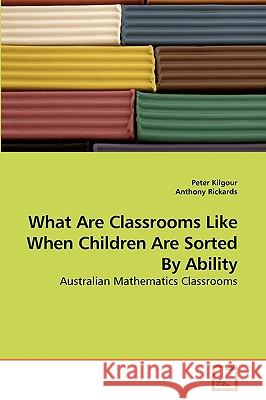topmenu
Wyniki wyszukiwania:
wyszukanych pozycji: 3
 |
What Are Classrooms Like When Children Are Sorted By Ability
ISBN: 9783639086614 / Angielski / Miękka / 2009 / 208 str. Termin realizacji zamówienia: ok. 10-14 dni roboczych. Teachers all over the world are teaching Mathematics in classrooms that may have students grouped by ability. Often the decision to group or not to group is made arbitrarily or because this is the way classes have always been arranged. This book will provide a valuable insight into the impact ability grouping has on the learning environments of Mathematics classrooms. The reader will gain insights into how different stakeholders in the schooling process relate to the concept of academic segregation. Information will be revealed on students' preferred learning environment and the way their...
Teachers all over the world are teaching Mathematics in classrooms that may have students grouped by ability. Often the decision to group or not to gr...
|
cena:
353,37 |
 |
The Jute Industry
ISBN: 9781023123969 / Angielski Termin realizacji zamówienia: ok. 16-18 dni roboczych. |
cena:
139,88 |
 |
The Jute Industry
ISBN: 9781023123907 / Angielski Termin realizacji zamówienia: ok. 16-18 dni roboczych. |
cena:
88,95 |










